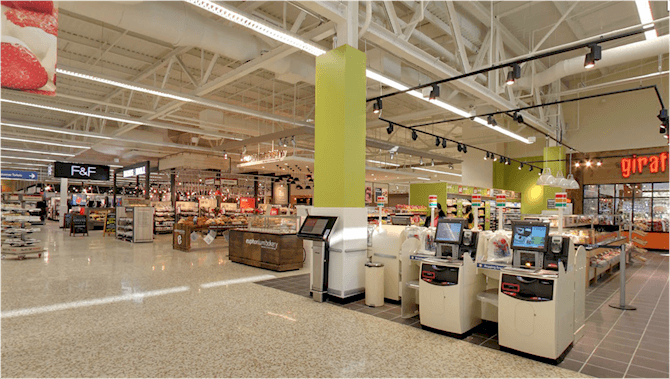High street department store BHS recently filled for administration following cash flow problems, acting as a stark reminder of how even a growing economy (as outlined by the UK Government in recent months) still continues to struggle.
Not so long ago - in the financial crash of 2008 - one of the giants of the high street retail industry, Woolworths, suffered a similar fate and eventually ceased trading. This came only weeks after Lehman Brothers shocked the world and ceased to exist after its original incursion in 1850.
Interestingly, towards the back end of the financial year in 2015, Sainsbury’s was the only one of the big four supermarket chains to increase sales and market share, though Tesco still remains the UK’s largest supermarket chain with a 27.9% market share. Sainsbury’s has grown to have a 16.6% market share due to its recent activity in the market, whereas Asda’s market share has fallen to 16.4% following a 3.5% reduction in sales in the last quarter of the financial year. So if these high street retail chains are still performing in what is still a difficult economic climate, why has BHS - among many others - struggled?
To answer this question, I turn to the revolutionary invention of ecommerce. Recent figures indicate that 27% of retail sales now take place online and forecasts an 11% growth in 2016 where sales will rise to £126 bn. Mobile ecommerce has also grown by 42%, and 45% of all sales were made by mobile devices towards the back end of the last financial year.

One of Tesco's newest stores in Watford, England
The ease of access to technology and growth of the ecommerce market may be a significant mechanism as to why high street shops are struggling to stay open, where based on the mentioned figures, ecommerce is growing and high street shops and supermarkets seem to be closing. Online sales in the UK, US, Germany and China have been predicted to grow by £320bn from now to 2018. The potential growth of ecommerce within the retail industry would seem to be a key indicator of where the commercial market will be and where we are moving as an economy within the coming years.
So what does this mean for facilities management service providers in the retail industry?
In 2014, nearly 1000 stores closed its doors; in 2015 Tesco indicated that 43 stores were to close. Adding to this, early estimates show that 11,000 people at BHS could lose there jobs where a majority of stores across the UK would be under threat. So what does this mean for service providers in the retail industry?
The consistent growth of e-commerce within the retail industry is going to have significant impacts on high street retail shops and supermarkets, where antecedent effects of the bombing e-commerce market have led to many high street stores closing and major retail chains seeing increasing difficulties within the market. This means budgets for retail chains are getting tighter, forcing service providers to cut costs and improve bids by finding ways to reduce strain on budgets.
However, as a recruitment consultant at the FM Network, in recent months I have spoken to many candidates who have been made redundant because contracts have been lost, retail chains have moved to internal sources, and store closures have led to a loss of business for service providers. Therefore, based on the predicted growth of the e-commerce market in the near future, service providers are going to have to deal with more store closures, budget cuts and increasing pressure from clients.
Overall, the outlook for the retail industry is positive in terms of sales and profit, however, it would seem the day’s of people shopping at high street stores is coming to an end. This raises serious questions for services providers in the retail industry. Is there a market for service providers in the retail industry or is this nearing the end of an era?